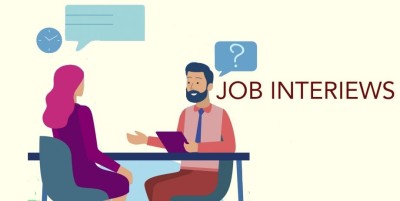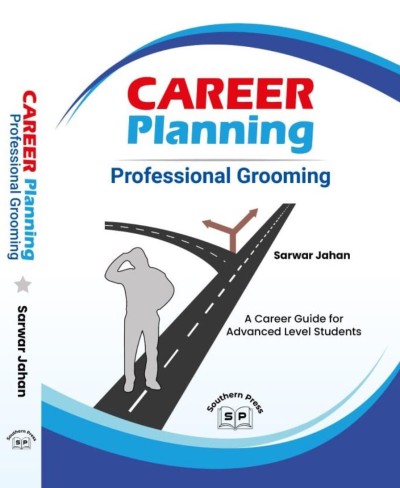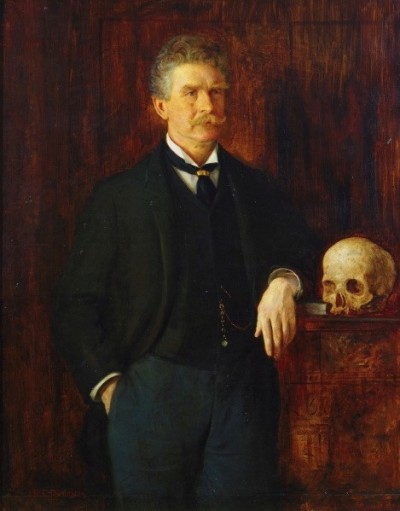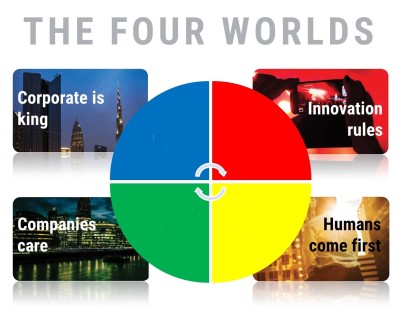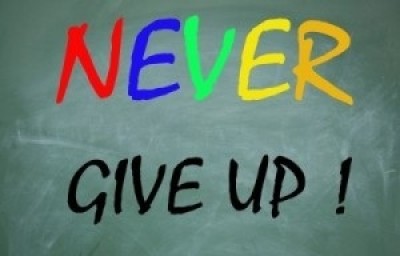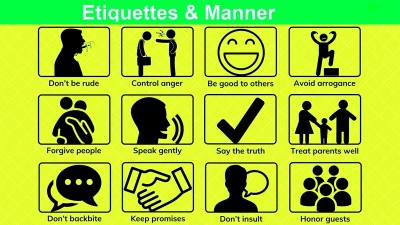Course description
Chapter 8.
Interviewing
Introduction to Interviewing
Interview, an inevitable part of a job. When an employer determines, through reviewing your resume and cover letter, that you have the necessary skills and experience to succeed in their organization, they will invite you for an interview. The interview is designed to closely assess your experiences and motivation and to determine whether you will fit well with their organization. Interviewing is the most personal part of the job search process because it involves assessing whether a candidate will mesh well with a company’s culture. Fit can be measured by evaluating a candidate’s interpersonal skills, interests, and general presentation. With research and proper preparation, you can demonstrate why you are the right candidate for the position.
The job interview is the most important aspect of your search for a new career opportunity. The way you interview will determine whether or not you get a job offer. From the moment you walk in, the employer will begin evaluating you on a variety of levels- your appearance, your personality the way you express yourself to name just a few. If you are prepared, you will project a positive, professional image that will give you a big advantage over the competition. Follow these suggestions to be your most effective in face–to–face meeting with potential employers.
What is an interview?
Any face-to-face contact with anyone who has the authority to select or supervise a person with your skills. They may or may not have a job opening at the time you interview with them. An Interview is a Sales Meeting. You are the salesperson, You are selling yourself. It is Selling Yourself. An interview is usually the last stage of a job application process. Any face-to-face contact with anyone who has the authority to select or supervise a person with skills. They may or may not have a job opening at the time you interview with them.
A Job Interview Is…
• An opportunity to meet face to face(normally)
• To discuss your qualifications
• To assess your ability and skills
• To demonstrate your skills and personality
• To sell yourself
Types of interviews
There is more than just one type of interview; you should prepare yourself for any one of the following examples.
· Face-to-face
The face-to-face interview is what most people will expect to have if they reach the interview stage of a job application.
· Telephone
Telephone interviews can be part of a formal selection process or used by employers to screen for suitable candidates. If you have used an agency, a company may pick up your CV and call unannounced. You should be prepared for this, but also make it clear with the agency when you are available for calls, after all, when a company has a lot of candidates to choose from they may not always call back.
Virtual Interviews/ Video Conferencing
Although rare, with video conferencing becoming more widely available, you may be asked to take part in a video conferencing interview, these are most likely to occur when applying for an overseas position.
Sequential
Sequential interviews are a series of interviews one after the other, possibly with different people from the company, you have applied for.
Panel
Panel interviews consist of a number of people interviewing you at the same time, typically consisting of an HR representative, someone with specific knowledge of the position you are applying for and a chairperson who organizes and coordinates questions.
Group
This type of interview may consist of a large number of applicants taking part in a group interview, you should be prepared to talk in front of large numbers of people about your work and process.
To fit in an interview?
Your interview starts before you walk into an employer’s door..
Employers are not looking for the highest qualified, they’re looking for the best match! Know Your Experience and Background
• Personality: What are your strengths and flaws
• Your Values & Beliefs
• What are your Interests
To fit in
The three most important things you should do before your interview:
1. PREPARE!
2. PREPARE!
3. PREPARE!
Preparation is the key… to all successful interviews
Preparing for an Interview
Preparing for your first interview can be a little nerve-racking. Good preparation will assist you to control the nervousness and maximize your chances of a successful outcome. One way to accomplish this is often by watching the results from surveys of employers to get what are the highest characteristics they appear for in job candidates. Take a glance at the highest 10 Personal Characteristics, start taking a private inventory and see how you qualify in these categories. Think of one or two samples of how you've got proven yourself within these areas in the past and be thoughtful about how these characteristics would be valuable in the workplace environment that you are hoping to get into. Do thorough company research including reading annual reports, newspaper articles, and trade journals. Look at the corporate homepage to seek out their mission statement, long-term goals, recent press releases, and to look at corporate photos. Do not limit your research only to company-controlled information.
Why is it good to prepare for an interview?
You may have a really strong portfolio but unless you can sell yourself in an interview, you may find getting that the all-important job may be severely hampered. Some companies and agencies even include tests as part of the interview process to help whittle down applicants, after all, you may be one of up to several hundred applicants, preparing for them can make all the difference.
Preparing for an Interview
Preparing for the first interview can be a little nerve-racking. Good preparation will help control the nervousness and maximize the chances of a successful outcome. Discover what are the top characteristics they look for in job candidates.
Preparation Checklist Before the Interview
• Research the employer
• Research Job: “Job Match”
• Relate Your Career Goals to Job
• Prepare List of 8-10 Selling Points
• Prepare and Introductory mere talk
• Prepare answers to Typical Questions
• Prepare a resume & Revise / Application Form
• Research Interviewer / Interview Format
• Find out what the job responsibilities are
• Find out and record where, when, and with whom you will interview with
The Days before Interview
• Where is it? (Expect the unexpected)
• What do you wear?
• What do to bring?
• Final Rehearsal
Before Interview Know the Position
Make sure you and the position are a match, this the job you like to do.
Duties of the position
Compensation range
Location
Work schedules
Benefits
Know the Organization
Organization’s name
Private or public
What products or services
Key management team
What is the employer looking for?
• Job skills and transferable/adaptable skills
• Flexibility
• Dependability
• Teamwork
• Productivity
• Creative Thinking and Problem Solving
• Organizational Skills & Leadership Skills
• Communication/Customer Service
• Ability to continuously learn
What should bring?
Chances are you will be asked to take along a portfolio. There is no harm contacting the company you are applying to, to ask them what they will want you to bring.
Where and when the interview will happen?
Make sure you are clear as to where the interview will be taking place and at one what time, if you unfamiliar with the location it's worth spending time before your interview investigating its location, and how long it will take you to get there. There is nothing worse than being late for an interview if you are given them a courtesy phone call to explain why don’t say you overslept!
Who will be interviewing you?
If possible find out who will be interviewing you. Research them, find out their role at the company and any projects they may have worked on.
The Night Before Your Interview
The night before your interview ensure that you have taken the following steps to prepare and feel confident:
• Read through your notes and documents (e.g., your resume, cover letter, job description, company or industry summaries) one last time.
• Know the route you will take to the office and how much transportation time you will need.
• Examine your clothing for stains and wrinkles. Look for scuffs on your shoes. For additional information.
• Set your alarm clock so that you have enough time to get to the interview without rushing.
• Get a good night’s sleep.
• Print out multiple copies of your resume on good-quality paper.
Are You Ready For The Interview?
• Have you thought about your goals, values, and skills and how they match the opportunity?
• Have you researched the field, organization, and position?
• Do you know the name and title of the interviewer?
• Have you prepared an appropriate interview outfit?
• Have you identified the time and place of the interview and the best method to get there?
• Have you brought extra copies of your resume and a copy of your reference list?
During the Interview?
The interview process can be scary if you do not know what to expect. To make it easier on you, keep in mind that most interviews fit a general pattern. The typical interview will last 20-30 minutes, although some may be longer. A typical structure is as follows:
1: greeting and small talk
2: a mutual discussion of your background and credentials as they relate to the needs of the employer
3: you have an opportunity to ask questions
4: wrap-up/discuss next steps in the process. When you do respond to questions or ask your own, your statements should be concise and organized. This could be your last chance to market yourself to the employer!
Smile, Be Enthusiastic…And Get There Early!
The outcome of many interviews is decided during the first 10 seconds of the introduction. Greet the employer with a firm handshake, eye contact & smile, Project an enthusiastic, professional image right from the start. Characteristics that contribute to a professional image is; business-like (appropriate) attire, self-confidence, maturity, a sense of humor, warmth & prompt concise answers to questions. Arriving early makes a good impression. That shows appreciation for the employer’s time and allows you enough time to complete the required paperwork.
Building Relationship with Interviewer
• Attitude
• Gesture
• Movement
• Smile
• Eye Contact
• Voice Tone
• Breathing
• Chunk sizes of information
• Elements of their words (reflected back)
Avoid Barriers
• Avoid clenched fists
• Avoid covering the mouth or lips (it suggests you have something to hide)
• Maintain good eye contact, (but don’t stare)
Interview Selling Points: interview begins the moment you walk in the door of the company or institution. Be brief and to the point, Be positive, Honest, If don’t know, say so.
• Strengths
• Weaknesses
• Skills
• Experience
• Qualifications
• Achievements
• Challenges Overcome
• Interests (current, active, and relevant)
What type of questions you may face?
Be prepared for any question, included are a few examples of the types of question that might be asked
What is your strongest (or weakest piece) of work?
Of course, your portfolio should include all your strongest work. You should be able to identify the strongest and weakest examples.
How would you do this?
You may be asked to describe a process used to create a certain piece of work; this question can help employers identify your ability to use certain tools without a book or guidance.
Where do you see yourself in five years' time?
You should be as honest as possible with this question, having a career goal and focus gives you ambition, a trait which employers want to see in their staff. For example, if you see yourself being a creative director say so, but avoid saying you want to be a creative director for a company other than the one that is interviewing you.
Why do you want to work for us?
In this case, it is easier to write what you shouldn’t say rather than what you should. Never say “I don’t know” or “for the money” or “you’re advertising”. Identify what about the company interests you, and where you see yourself fitting in within the company.
Other tips
· Phones: Turn off your mobile phone before the interview. It is incredibly rude to have your phone go off mid-interview.
· Gum: Do not chew gum. It doesn't look professional.
Why the Employer Wants to Interview You
When an employer determines, through reviewing your resume and cover letter, that you have the necessary skills and experience to succeed in their organization, they will invite you for an interview. The interview is designed to closely assess your experiences and motivation and to determine whether you will fit well with their organization.
Interviewing is the most personal part of the job search process because it involves assessing whether a candidate will mesh well with a company’s culture. Fit can be measured by evaluating a candidate’s interpersonal skills, interests, and general presentation. With research and proper preparation, you can demonstrate why you are the right candidate for the position.
Job Interview Techniques
Use the following job interview techniques to set you apart from the competition, and help you secure the job you desire.
Research the Company
This is one of the simplest and very basic techniques for an employment interview, which may put you advantage over the competition. Most candidates do not use this technique. Get as much information as possible about the company before the interview. Try to know what they do, how well they perform, etc. will show the interviewer that you are interested in what they do and what they have to offer.
• Find the company's website, and review the following:
- Know the brief history of the company, how they were established, who are the top executives, etc.
- what kind of services and products they offer and should give an idea about what kind of clientele they market to
- if found a job posting through a search engine or classified, this page may provide more in-depth information about what they value in their employees, the kinds of benefits they offer, and the work culture
- Find the company's vision or mission statement on the website. If not, this may be a great question to ask at the interview
• Search the company's name in search engine - you may find pages containing the company in the news, who some of their retail/wholesale clients are, etc.
• Search the company in a local business journal online, to see any local news stories on the company that may be of interest.
• If you know anyone who currently works for the company, talk to them and ask them questions about the company and the work culture.
Using the above employment interview techniques for researching the corporate will help set you aside from the competition, also will give an idea whether this is often the kind of company you'd like to work for. Do you believe in what the company does?
Do you feel that you simply could make a difference by working for this company, and be a valuable part of the organization? Are your skills and strengths an honest match for what the corporate is seeking?
Practice Interviewing
Before going to the interview, practice interviewing with a friend or someone knowledgeable. They will assist you to plan and steel yourself against the interview, and offer additional employment interview techniques to assist you to improve. Practicing is one of the best job interview techniques anyone can use to boost their confidence, and increase knowledge. Prepare questions before ask.
During the Job Interview Techniques
• On the way to the interview be confident, Remind yourself you can do it and you are qualified
• Visualize yourself in the position
• Arrive early, giving yourself plenty of time to relax and not feel rushed
• Make eye contact with the interviewer, and SMILE!!!
• Sit up straight, and keep reminding yourself that you're confident
• Take time to answer questions, and answer honestly. Be yourself!
• When answering questions, make sure you're selling yourself and your abilities. Highlight your achievements, and show how you've helped other companies succeed. This is particularly important if you're interviewing for an edge within a special industry or field than your primary experience.
• Remain positive, and don't unload any personal problems or issues onto the interviewer
• Ask pertinent questions when appropriate, or add insight. For example, if the interviewer states that the corporate has just expanded operations, you'll mention that you simply read a piece of writing about the recent expansion and the way exciting it must be, and how you'd like to be part of the growth
• Remember to ask questions in order to gain an understanding of the company, and even let the interviewer know that you want to ensure that your skills and qualifications will be a good match for them
• The first interview usually isn't appropriate for discussing salary information. Don't bring it up unless they do, and provide a general range for your salary expectations if the question is asked
• Before you leave the interview, thank them for taking the time to discuss the position with you in more detail. State that you simply understand what they're trying to find, which you think your unique qualifications and skills will cause you to an excellent addition to their workforce
• Ask when you might expect a call about the status of the position. Make sure to get the business card of the person(s) who interviewed you.
• If you know that you don't want the position during the course of the interview, let the interviewer know that this position really isn't a good fit for you, and thank them for taking the time to discuss the position. Wish them success in finding the ideal candidate. There's no reason to waste some time or theirs if you recognize the position isn't what you had hoped for.
When you master the work interview techniques outlined on this page, you're well on your thanks to interview success!
What Happens During the Interview?
The interview process can be scary if you do not know what to expect. To make it easier on you, keep in mind that most interviews fit a general pattern. The typical interview will last 30-45 minutes, although some may be longer. A typical structure is as follows:
• Five minutes: greeting and small talk
• Fifteen minutes: a mutual discussion of your background and credentials as they relate to the needs of the employer
• Five minutes: you have an opportunity to ask questions
• Five minutes: wrap-up/discuss next steps in the process As you can see, there is not a lot of time to state your case. When you do respond to questions or ask your own, your statements should be concise and organized. But do not be too brief. This could be your last chance to market yourself to the employer!
The Greeting, First Impressions, and Small Talk
It is a good idea to arrive at least 15 minutes before your scheduled time. You can use the time to relax, organize your thoughts, and even wipe your sweaty palms with a handkerchief, if necessary. The recruiter begins to evaluate you the minute you are identified and continues to evaluate you in every way. For example, he or she is analyzing the way you shake hands upon being introduced. Be firm, it shows confidence. Do not be afraid to extend your hand first. This shows assertiveness. Here are some tips to ensure your first impression is a positive one:
• Appearance counts. When you look good, you feel good. Make sure you look groomed and professional. Your clothes and accessories should be neat, conservative, and neutral. Your clothes are your packaging and should not take attention away from the product.
• Nonverbal communication sometimes conveys a stronger message than verbal communication. According to one UCLA study, 93 percent of a person’s communication effectiveness is determined by nonverbal communication. Eye contact and smiles can indicate a confident and upbeat attitude. Have a firm (but not too strong) handshake and moderate your voice to sound calm and assertive.
• During the ‘settling in’ stage of the interview you may engage in brief ‘small talk’. This is a good opportunity to demonstrate your social and interpersonal skills as well as your excitement about the opportunity for which you are interviewing. The words you choose will say something about you, as well as your knowledge of the industry. It is important to use “their” words and talk “their” talk.
Strategy for Discussing Your Credentials
The main part of the interview starts when the recruiter begins discussing the organization and asking some questions regarding your past experience related to the position for which you are interviewing. Many times recruiters will ask why you chose the major you did or what your career goals are.
These questions are designed to determine your goal direction. Employers seek people who have direction and motivation. It is a good idea to think about what the recruiter is trying to find out about you when they ask certain questions. For example, if you are asked to discuss a time when you had a conflict with a colleague, keep in mind that the recruiter is looking for someone who is confident about his or her own beliefs, but open to other people’s ideas as well. Most of the time, he or she is looking for collaboration and compromise. Always listen carefully to the question, ask for clarification if necessary, and make sure you answer the question completely. Give a specific example and walk through the situation, step by step. A good story-telling technique is a huge plus when interviewing because it keeps the recruiter interested. So give only the essential background information and get to the point! Your interview preparation should include identifying examples of situations from your experiences on your resume where you have demonstrated the behaviors a given company seeks. Briefly explain a particular situation that relates to the question, not a general one. Describe the situation, tell what you did specifically, and the positive result or outcome. Your answer should contain these four steps (Situation, Task, Action, Result or “STAR”) for optimum success.
Overall - Expect the Unexpected
During the interview, do not be surprised if you are asked some unusual questions. Many times questions are asked simply to see how you react. For example, surprise questions could range from, “Tell me a joke” to “What time period would you like to have lived in?” These are not the kind of questions for which you can prepare so do not spend time worrying about them in advance. Stay cool, think and give an honest answer. The employer will evaluate your reaction time and the response you give, but again, there is no way to anticipate questions like these. While these questions are not always used, they are intended to force you to react under some stress and pressure. During the interview, be prepared to deal with aspects of your background that could be construed as negative, i.e., low-grade point average, no participation in outside activities, no related work experience. It is up to you to convince the recruiter that although these points appear negative, positive attributes can be found in them. A low GPA could stem from having to fully support yourself through college; you might have no related work experience, but plenty of experience that shows you to be a skilled and potentially valuable employee.
Manners
Good manners aren't natural and have to be taught. In today's society, you see disrespectful acts on television, in movies, and in your everyday life. That's why it's so easy for young people to get caught in the trap of rudeness. But it's not too late to teach someone good manners. It's a skill that s/he'll be able to use for the rest of his/her life. If you don't have an etiquette resource, keep reading for more ideas. Consider picking up one of many etiquette books. Some colleges offer weekend etiquette lessons, usually open to all ages. This is a great idea for anyone looking to make a better impression. It's common sense that people prefer a reasonable amount of respect.
• Choose your words wisely
• Think things out before speaking, especially if you are poor at finding the right words.
– Don't speak loudly.
– Speak with respect
– Don't ever speak of bodily functions, such as using the bathroom or telling rude jokes. Even in casual conversation, this indicates immaturity and often makes bad impressions.
– Always respect all elders,
– Using the terms 'Thank you, 'Please', and 'You're welcome
– Hold open a door
– Speak highly of your parents
– Do not swear or use filthy language. It can make you sound cheap and disrespectful
Greet others appropriately.
– Try showing you are interested in others by asking questions about them. Don't steal their spotlight by just talking about yourself. Don't come off as selfish. Continually talking of yourself is boring and others will avoid you.
– Pay attention to how you carry yourself. Have some class, which is the same as manners. Don't slouch; have a neat appearance; shake hands firmly; be and smell clean; hold your head high and don't hide behind sunglasses inside; it gives the impression of arrogance and immaturity.
– Don't put others down, belittle them or spread gossip.
– Ask for clarification properly. If you missed something someone said, or if you need clarification, ask "Could you say that again for me, please?" or "I'm sorry?" " Pardon?" also sounds polite enough. Avoid solely using the word "What?" as it's often brash and unrefined.
Summary
Know yourself and what you have to offer. Make sure, the position are a match.
Know the organization’s history and the benefits you would bring to it. Prepared a professional resume. You’ve practiced, practiced, practiced your delivery. select appropriate attire. Answers to probable questions, including behavioral-based questions.; practiced your smile, eye contact, and a firm handshake. Make the interview site on time.
Don’t Give Up
• It takes time and persistence to reach your goal
• Consider every interview a learning experience
Sample Questions Asked by Employers
Introduce yourself?
How would your best friend describe you?
Define success. Define failure.
What can you offer us?
Who are your role models? Why?
What kind of people do you enjoy working with?
What motivates you in a job?
What frustrates you? (makes you angry?)
How do you spend your spare time? What are your hobbies?
Have you ever spoken in front of a group of people? How large?
Sample Questions Asked by Employers
Personal Assessment
• Tell me about yourself.
• What are your greatest strengths and weaknesses?
• What have you done that shows initiative and willingness to work?
• How do you react to criticism?
• How would your best friend describe you?
• Describe your ideal job.
• Define success. Define failure.
• What can you offer us?
• Who are your role models? Why?
• What kind of people do you enjoy working with?
• What motivates you in a job?
• What frustrates you? (makes you angry?)
• Are you a joiner or a loner? A leader or follower? A committee member or an executive?
• How do you spend your spare time? What are your hobbies?
• Talk about a time when you had trouble getting along with a professor/co-worker/supervisor. How did you handle it?
• Have you ever spoken in front of a group of people? How large?
• Tell me about a leadership role, you have had. What makes a good leader?
• Where do you want to be in five years? Ten years?
Education and Experience
• Can you summarize your educational background for me?
• Why did you decide to attend Southern University?
• Why did you choose the major you did?
• What courses did you like the most? The least?
• Describe for me the most rewarding accomplishment since you’ve started college.
• Describe your study habits. How do you balance study with your personal life?
• What job-related skills have you developed?
• How do you spend University vacations?
• What extracurricular activities are you involved in? What have you gained from those experiences?
• Have you plans for furthering your education?
• If you could start University over, what would you do differently?
• Tell me about a class in which you were part of a study group. What role did you play?
• Did you work while going to University? In what positions?
• Tell me about the most satisfying job you ever held. The least?
• Have you had any work experience related to this position?
• What kind of boss do you prefer?
• What kind of work interests you the most?
• Have you had any supervisory experience?
• What frustrates you on the job?
• Have you ever quit a job? Why?
• Give an example of a situation where you provided a solution to an employer.
• Give an example of a time when you worked under deadline pressure.
• Have you ever done any volunteer work? What kind?
• How would a former supervisor describe your work?
• Describe a time when you had to go above and beyond the call of duty to get the job done.
• Describe a time when a team member came to you for help. What was the situation? How did you respond?
Career Ambition and Plans
• Why did you choose this career field?
• What type of position are you looking for?
• What are your long-range and short-range goals and objectives; when and why did you establish these goals; how are you preparing to achieve them?
• What specific goals, other than those related to your occupation, have you established for yourself in the next five years?
• What qualities does a successful manager possess? ... does a successful team player possess?
• What do you know about opportunities in your field?
• What are the most important rewards you expect from your career?
• What kind of challenge are you looking for?
• What do you think determines a person’s progress in a good company?
• How do you determine or evaluate success?
• What are your ideas on salary?
• How much money do you hope to earn five years from now?
• What personal characteristics are necessary for success in your field?
• Do you prefer to work on your own or under a supervisor?
Company or Organization
• Why do you want to work for this organization?
• What do you know about our organization?
• What section (service or product) are you most interested in?
• Do you prefer large or small companies? Why?
• How do you feel about working in a structured environment? A non-structured environment?
• What do you think it takes to be successful in a company such as ours?
• In what ways do you think you can make a contribution to our company?
• How long would you expect to work here?
• Are you willing to work overtime?
• Are you willing to work flextime?
• Are you willing to go where the company sends you?
• What type of work environment are you most comfortable with?
• Why do you think you might like to live in the community in which our company is located?
• Why should I hire you?
The Close
• When could you start work?
• Is there anything else I should know about you?
• Do you have any other questions?
Behavioral and Case Interviewing
Behavioral Interviewing is based on the premise that the most accurate predictor of future performance is past performance in a similar situation. It focuses on experiences, behaviors, knowledge, skills, and abilities that are job-related. Employers predetermine which skills are necessary for the particular job and then ask very pointed questions to determine if the candidate possesses those skills. For example, if leadership is necessary for a position, you may be asked to talk about an experience in which you were a leader as well as what you think makes a good leader.
Examples of Behavioral Questions
Behavioral questions can be difficult if you are not prepared. Always try to be conscious about what the recruiter is trying to find out about you. Setting up a mock interview with the Southern University Career Development Center is an excellent way to practice. Here are some examples:
• Describe a situation in which you were able to use persuasion to successfully convince someone to see things your way.
• Describe an instance when you had to think on your feet to extricate yourself from a difficult situation.
• Give me a specific example of a time when you used good judgment and logic in solving a problem.
• By providing examples, convince me that you can adapt to a wide variety of people, situations and environments.
• Describe an experience when you were faced with problems or stresses that tested your coping skills.
• Give me an example of a time in which you had to be relatively quick in coming to a decision.
• Tell me about a time in which you had to use your written communication skills in order to get an important point across.
• Give me a specific occasion in which you conformed to a policy with which you did not agree.
• Give me an example of an important goal that you had set in the past and tell me about your success in reaching it.
• Tell me about a time when you had to go above and beyond the call of duty in order to get a job done.
• Give me an example of a time when you were able to successfully communicate with another person even when that individual may not have personally liked you (or vice versa).
Telephone Interviews
Telephone Interviews have one advantage over the other types of interviews—you can have your preparation materials in front of you as the interview is taking place. Prepare for a phone interview just as you would for a regular interview. Compile a list of your strengths and weaknesses, as well as a list of answers to typical interview questions.
Prior to the Interview
• Keep your resume in clear view, on the top of your desk, or tape it to the wall near the phone, so it’s at your fingertips when you need to answer questions.
• Have a “cheat sheet” of compelling story topics that highlight your accomplishments.
• Have company information summarized including specific critical points describing the employer and the company’s products.
• Have a shortlist of questions about the job and the organization.
• Have a pen and paper handy for note-taking.
• Clear the room—evict the roommates and the pets. Turn off the stereo and other distractions.
• Close the door. Place a sign “Interview in progress— please do not disturb. Thanks.”
• If you are caught by surprise at a busy time, you may request another time to speak.
Employers use telephone interviews as a time-effective way of identifying and recruiting candidates for employment. There are three basic types of telephone calls that you get from employers at this stage. One of the keys to success is to be able to identify quickly what type you are going to be participating in.
A. “Information Gathering Interviews” An employer may call in order to assess your interest in the company. This often occurs if you are referred to him or her through personal contact, referral, or someone you met at a career fair. This kind of call should be treated as seriously as an in-depth interview. It is a good way for you, as a potential employee, to see if you are a good fit for the company and its objectives.
B. “Screening Call” Many companies use telephone calls as a screening mechanism in order to narrow the pool of applicants who will be invited for in-person interviews. These are quick and the person calling you will most likely be someone from Human Resources.
C. “In-Depth Telephone Interview” In this case, the telephone is being used as a way to minimize the expenses involved in traveling for the interviewer and/or the interviewee. Depending on the type of organization that you are interviewing with, you may be interviewed by a hiring committee, where you will be broadcast over a speakerphone.
• Do not smoke, chew gum, eat, or drink. • Do keep a glass of water handy, in case you need to wet your mouth. • Smile. This may sound strange but smiling will project a positive image to the listener and will change the tone of your voice. • Speak slowly and enunciate clearly. • Use the person’s title (Mr. or Ms.) and their last name. Only use the first name if they ask you to. • Do not interrupt the interviewer. • Take your time—it’s perfectly acceptable to take a moment or two to collect your thoughts. • Give succinct answers. • Be able to tell a brief example/story of your experiences.
Before you hang up
• Thank the interviewer for the opportunity.
• Get the correct spelling of your interviewer’s name.
• Get the contact information for follow-up questions.
• Ask about the hiring timeline, “When are you looking to have a decision made?”
After the Interview:
• Take notes about what you were asked and how you answered.
• Follow with a thank-you note, which reiterates your interest in the job.
The 10 Toughest Interview Questions of All Time -- and How to Answer Them
Sitting through a job interview may very and one of the most nerve-wracking experiences of an adult's life. But while every interview (and interviewer) will be different, the questions asked often are not. You can give yourself an edge over the competition, and a bit of peace of mind, by anticipating these 10 toughest interview questions -- and preparing your winning responses ahead of time.
1. Tell me about yourself.
While this may sound easy, this broad, open-ended question leaves room for endless babble, without getting out what needs to be said. What needs to be said? Stick to your academic background, your professional highlights, and future career goals (including your desire to work at said company) -- and keep it short. Thirty or 40 seconds should suffice.
2. Why do you want to work here?
This question has a definite hidden agenda (as do many interview questions): did you do your homework about the company?
When answering this toughie, be sure you have in fact read up on the company you are interviewing with. Highlight some reasons why the company is poised in a good position in the industry and offers you a unique opportunity that others do not. You can also explain that part of the reason you want to work there is that your qualifications so perfectly match their needs (and expand on how).
3. What are your weaknesses?
There is an opportunity here for you to show your ability to overcome hurdles, including your own vulnerabilities. Be honest and explain your weaknesses (do you have a hard time staying organized? Not good at remembering names? Lose your cool easily?), but be sure to counter each one with steps you have taken to overcome it. Hard time with organization? Explain the ingenious filing system you implement to keep things in order, and so on.
4. Why did you leave your last job?
Stifle the desire to say what you may really be thinking on this one ("The boss is a jerk!" may be an honest answer, but not an advisable one). No matter what the reason was for your departure, focus on the positive aspects. No one wants to hire someone who is holding on to angry, bitter or resentful feelings, or who complains constantly.
5. Why should we hire you?
This is your chance to be your own salesperson and let the interviewer know what sets you apart from other applicants. Steer clear of generic terms (like hardworking or motivated), unless you can back them up with real-world examples. Now is the time to lay out all of your strengths and how they mesh with the position you're after.
6. Describe a conflict at your last job, and how you resolved it.
It's a good idea to think of a time (or two) in your past professional career in which you really saved the day. This could be anything from helping coworkers to communicate better to coming up with a way to help the company operate more efficiently. Whatever it is, be sure to focus on the steps you took to resolve the problem, as opposed to the problem itself.
7. What are your salary requirements?
It is not appropriate to discuss salary at an initial interview unless the interviewer brings it up or you are offered the position. Assuming the interviewer asks you this deal-breaker question, tell him or her the salary range you honestly hope to earn in the position. The key is to always say a range, rather than one set number, and be sure to make it known that you're willing to negotiate.
8. Where do you see yourself in 5, 10 ... 15 years?
With a question like this it's best to not lock yourself into anything absolute. In other words, let the interviewer know that you hope to find a position that allows you to grow with the company and as a person.
9. When were you most satisfied at your last job?
This gives the interview a chance to get to know you, and whether you would be happy in the position. You should describe the things you liked most about your last job, then tie it into the position you're after
10. Do you have any questions for me?
If you say 'no' to this question, it shows a lack of interest, motivation, and curiosity about the company. You should come prepared with a list of questions to ask the interviewer -- benefits, work schedule, job responsibilities, company policies, and procedures and vacation time would all apply (but refrain from asking about salary at this point).
Negotiating Salary and Benefits
Before you start negotiating your salary, be sure that you have done enough research to know what you can realistically expect. Be aware, that you will be offered a competitive salary based on what you are worth—not on what you want or what others are getting for similar jobs. Each person is unique, and “the going rate” is little more than a guideline. Salaries can vary depending on where the job is located.
The normal benefits include paid vacation, health insurance, tuition assistance for courses are taken after work, contributions toward your pension. In addition, some companies may also include life insurance and /or relocation expenses in their benefit packages.
It is also possible to work for a company and receive no benefits whatever. Small companies may not have the cash flow to offer large benefits.
Money Isn’t Everything- Because you want a career, not a job.
General Tips
-Map your route to the interview site so you’re not late.
-Appropriate business attire is a must.
-Refer to your achievements often before your interview date, so they’re fresh in your mind.
-Know your answers to probable questions before you walk in the door.
-Practice, practice, practice your answers and your delivery. Ask others to critique you.
-If you have access to a video recorder, tape a mock interview so you can see your nonverbal communication.
-The image you project and how you present yourself will be either a deal-maker or deal-breaker.
-Think about questions you need to ask.
-Write them down to jog your memory.

